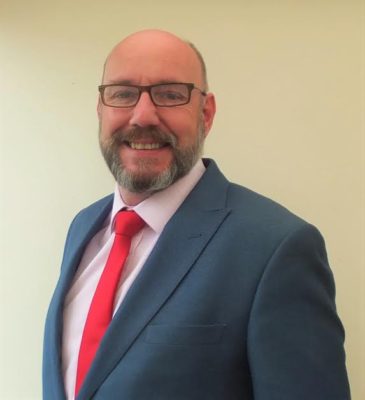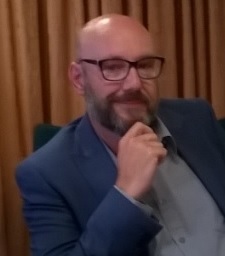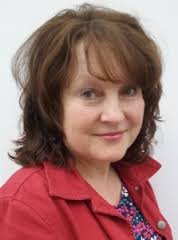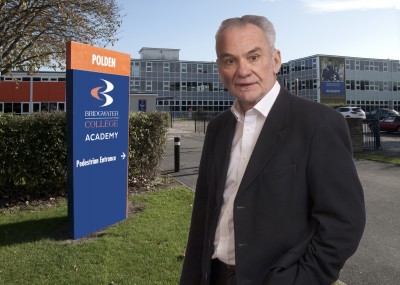
An attempt by Somerset County Labour Leader Leigh Redman (Bridgwater South) to commit the county to rejecting the reintroduction of the Grammar School system was defeated at Full Council today by 20 votes to 14 with 6 abstentions and 15 no shows. All the more reason to build a strong Labour group on County in next years elections
The Motion was proposed by Cllr Leigh Redman (Labour) and seconded by Cllr Jane Lock (Lib Dem) and declared ‘This Council is against the introduction of Grammar Schools proposed by the Government for the following reasons:
(1) There is no evidence that they increase social mobility, indeed the contrary is true. These schools have only ever served the needs of the few and this County is determined to give all young people the opportunity to achieve academically.
(2) The return of Grammar Schools would introduce divisive selection when what is required is an inclusive, strategically planned education system that enables every child to thrive, learn and prosper and allows local industry and businesses to benefit from the outcomes of Somerset young people.
(3) The Council needs to be able to continue to play a full part in providing good schools where and when they are required in the County. Changing the status of schools and introducing selection will be a waste of time and resources of this Council, as well as detracting schools from producing good outcomes for all and being able to recruit and retain the best teachers.
Accordingly, Council will write to the Secretary of State for Education and the Prime Minister urging them not to allow the introduction of such schools in Somerset.
Cllr Leigh Redman’s speech is reported here in full

“Chairman, Councillors – We don’t need Grammar schools in Somerset.
When the new prime minister indicated, she was keen to introduce Grammar schools, she seemed happy to go against everything her government had set out in previous dialogues, as well as the desire of front line staff, those being teachers and heads.
The institute for fiscal studies states ‘there is good evidence that those in selective areas who don’t pass the eleven plus, do worse than they would have done in a comprehensive system.’ it goes on to say “grammars seem to offer an opportunity to improve and stretch the brightest pupils, but seems likely to come at the cost of increasing inequality”
A large % of Somerset children receive free school meals, but the IFS found “amongst high achievers, those who are eligible for free school meals or who live in poorer neighbourhoods are significantly less likely to go to a grammar school”
The government’s own DfE strategy for 2015-2020 talks about ‘Education Excellence Everywhere’, Nowhere does it indicate implementing a new tier of selective schooling to aid this strategy, each element talks about building on respect for teachers and head teachers, but a recent survey reports 4 out of 5 heads and teachers oppose grammar schools.
Those in favour of grammar schools argue, that selective state education allows academic pupils from more disadvantaged backgrounds to secure better academic success, and helps to close the attainment gap between richer and less well-off pupils. However, the evidence shows that this is not the case,
it has been suggested that new grammar schools would be located in low and middle income areas, thus boosting the chances of academic children living in those areas. However, again this is shown to be wrong, the location of a grammar school in a more disadvantaged area does not mean that children living in close proximity to the school will have the chance to attend.
Stand-alone grammar schools often draw large numbers of their pupils from outside their local authority. In 2013, for example, two-thirds of pupils at grammar schools in Stoke-on-Trent and Kingston-upon-Thames lived in a different authority area.
In Somerset, a large rural authority, pupils could be traveling great distances to a Grammar School or indeed to a Secondary Modern. If a Grammar were situated, let’s say at Kingsmead, Wiveliscombe, how would students from Shepton or Frome be able to attend. The East of the County would have a selectively different balance of students from other parts of the County.
Further, where would the children NOT selected in the Wiveliscombe area go to school and how would they get there. The knock ons for Somerset are too huge to contemplate in terms of admissions and transport. Chaos would ensue. When Grammar Schools DID exist in the County they were smaller in size with Secondary Modern establishments, close by, to accommodate those that were not passing the 11+. These sizes of school are no longer viable given the lack of funds available. Schools are struggling financially as it is.
Headteachers in Somerset have unanimously rejected the notion of Grammar Schools, however there is always the worry that an Independent School might seek to become a Free School, take money from the Dfe and set itself up as a Grammar thus draining academically talented pupils from existing Somerset Schools stretching funding even more thinly and creating the same scenario described moments ago. This Council needs to pass this resolution as a signal to the Regional Schools Commissioners that Somerset will not allow this disruption to its education provision in the same way it clearly rejected the forced academisation programme earlier this year.
We need a desire to see an ambitious programme of social mobility that stretches every child, rather than selecting only a lucky few.
Grammar schools are not fit for purpose in dealing with inequality.
We don’t need more selection in the education system. What schools desperately need is enough teachers and enough funding, both of which are in critically short supply. The government should focus on these issues rather than obsessing about an education policy plucked from the 1950s. We know in Somerset that great comprehensive schools and academies are delivering a stretching and ambitious education. We must aim to replicate this for every child, not selecting only a few to be supported to succeed, whilst leaving the majority behind.
Support this motion, it is your chance to show support for our young people and the future adults in our wonderful County”
Teachers Unions support Labour motion

Louise Southgate a teacher and member of NASUWT supported the motion saying “I am a Teacher and also very involved with one of the teachers’ Unions, the NASUWT. Today I would like to ask this question, “What is best for children and young people?” The Prime Minister has said that she wants “an element of selection in the school system.” The Prime Minister wants the most able of our children and young people to have access to Grammar Schools, were they will be encouraged to achieve their full potential, and gain access to our top Universities.
Like many teachers, I have grave concerns about the potential re-introduction of Grammar Schools. To me at the heart of the debate is the question, “What is best for children and young people?” I wonder, just how much time our Prime Minister has actually spent in the average secondary school? If you visit any Somerset secondary school, you will learn that some students to do go on to Oxford and Cambridge, and these students are not necessarily from affluent backgrounds. You will find that some students go to on to other Universities. You will find that some students go on to Colleges. Others take on Apprenticeships. Others decide to enter the workforce right after school. Visit any of our Somerset Schools and you will discover that they are lively places of learning, where students of all abilities are learning together, striving to achieve their full potential. However, ask any teacher why it is that some students are not achieving their full potential, and on the whole, they will respond that many students, for different reasons, do not have the confidence to approach their learning in a way that will enable them to succeed. What are some of these reasons? The General Secretary of the NASUWT, Chris Keates, highlights “Over three million children in the UK live in poverty, a key inhibitor to educational progress, and experience every day the harsh realities of cuts to welfare, specialist services and support, education grants and the wider effects of the recession.” In Somerset we know, only too well, that many children and young people are suffering in poverty. We also know that mental health issues in young people are also on the increase. These issues have profound effects on the education of children and young people. Just how will the introduction of Grammar Schools address these issues? Dr. Patrick Roach, the Assistant General Secretary of the NASUWT, puts it like this “The Government’s plans to introduce new grammar schools are a distraction from the real challenges and crises it has created in the education system.”

I have argued Grammar Schools are not what is best for the young people of Somerset. Grammar schools will not solve the issues that affect achievement. Let’s take a look for a moment at our Communities. In many of our rural Somerset villages, families are already facing issues such as lack of employment opportunities, low pay, lack of affordable housing, lack of transportation and isolation. The school means so much in these rural areas. The school is where all the children learn together. The school is where parents and other members of the community come together to meet. The school is the hub. The introduction of Grammar Schools would shatter the sense of community which is so important in these rural areas, creating a deeper sense of inequality for many. In our moral urban areas, we see issues of prejudice, discrimination, inequality and homelessness. Just how will Grammar Schools address these issues?
As Dr. Patrick Roach highlights, “It is time for government to commit to the vision and values of comprehensive education that secures equality of opportunity and entitlement for all our children and which is the basis for securing our shared values, inclusion and mutual respect and understanding.”
Grammar Schools are not the way forward! Grammar Schools are not was is best for our children and young people.
Our children and young people deserve a better deal! And, we must demand it!”
Sedgemoor Labour Support for Motion

Sedgemoor District Labour leader cllr Mick Lerry (a teacher and NUT rep) said “The Government is now prepared to “roll back the years” with the introduction of more Grammar schools. Where Grammar schools exist at the moment in places such as Kent many of the Secondary Modern schools are in Special Measures and finding it difficult to recruit qualified teachers. The Government will have to accept, that with the return of selection for Grammar schools other schools in the area will become Secondary Modern, because of the different intake of pupils. Yet the Government refuses to acknowledge that Secondary Modern schools will exist.
What would this mean for Bridgwater and Somerset. Well first of all you would have to decide which Comprehensive school should become a Grammar school or you would have to build a new Grammar school. The impact would then would be that many local students and pupils would have to walk by the their nearest local school, now deemed as a Grammar school, to attend the nearest Secondary Modern school and in many cases these pupils would have to be transported to their nearest Secondary Modern school. In certain rural areas there is only one local Comprehensive School, it might call itself an Academy School, but it is still a Comprehensive School, with non-selection at 11 years of age. So the introduction of Grammar schools in Bridgwater and Somerset would cause a massive reorganization of the provision of education for local pupils, parents and carers.

Education Secretary, Justine Greening, will publish a consultation paper on the education changes outlined by the Prime Minister. During that consultation process it will be important for pupils, parents and carers to really understand what the impact of Grammar schools could mean for education provision in Bridgwater and Somerset. Unfortunately this Government has decided to mess around with the structures of education and schools, rather than investing in smaller classes in Primary schools and the problem or teacher shortage. There is strong opposition to the return of the Grammar schools system, which will not lead to greater mobility for the many, even with the introduction of pupils from poor families being included in the quota of pupils to be selected. Where Grammar schools exist now only a small percentage of pupils are on free school meals. Once again the Conservative government is turning to a policy of elitism in education, rather than tackling the real issues to help social mobility for pupils and students.
Education is about great leadership and qualified teachers well resourced and working as a team, supported by parents and pupils, without being distracted by another educational structural change. Comprehensive education in Bridgwater and Somerset has led to an efficient, economic education system, giving greater mobility for the many, not the few. It is more important for pupils and students to be able to attend their local high performing Comprehensive school.
During the consultation process Somerset County Council will need to take a political position and say no to the introduction of Grammar schools, as it did to the policy of forced Academisation of Primary schools, by the previous Secretary of State for education. “
Tories close ranks
Sadly the opinions of teachers along with those of Labour, Independent and Lib Dem councillors were ignored by the ruling Tory group who simply closed ranks to vote down the motion with the clueless UKIP divided and unclear as usual on the issue.
Cllr Andy Govier (Labour Wellington) said “I think the key thing was Tory Leader Cllr Osman saying It ain’t gonna happen when talking about a grammar school in Somerset so at least our motion forced him into ruling out any new grammar schools.”

Sad – abstentions and no-shows! So Tory minority carried the day. Will the arrival of nuclear power station workers change the picture?